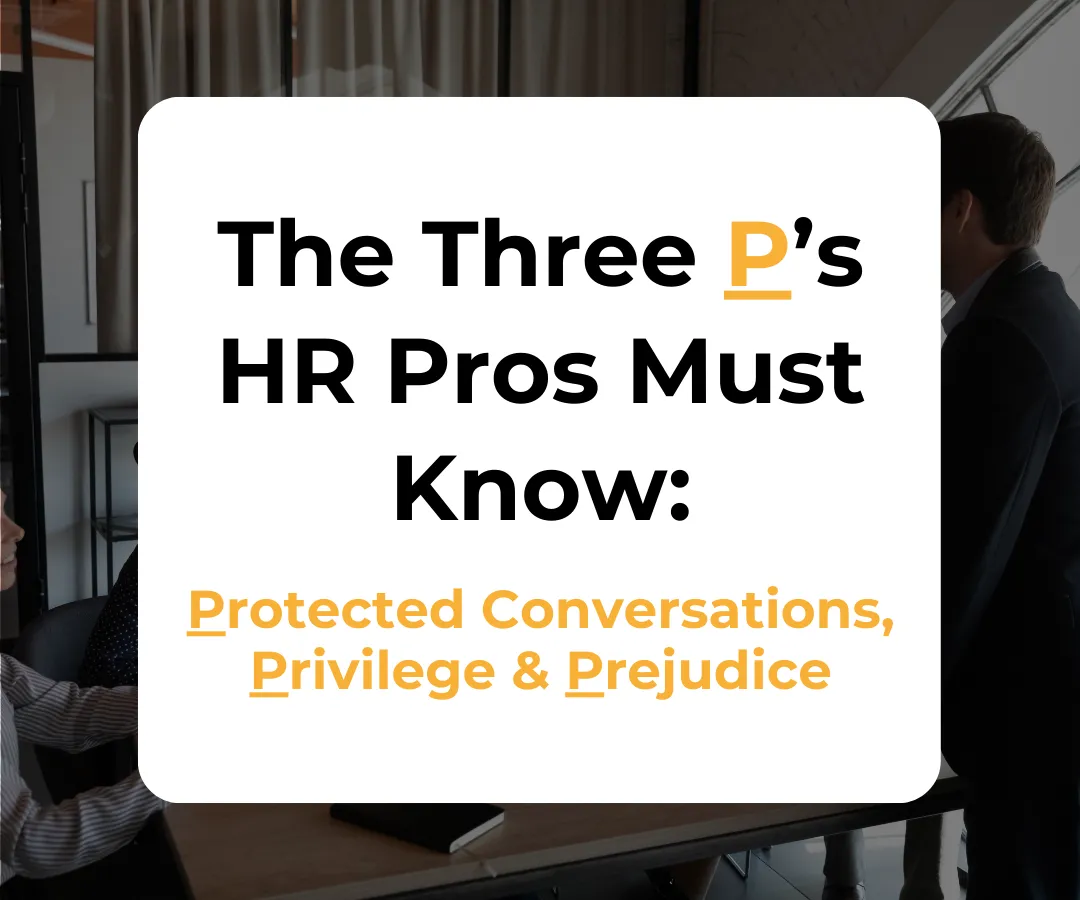Mon - Fri: 9:00 - 17:30
Legacy Strategies
Blogs & Articles
Stay up to date with the latest news
in Recruitment and Human Resources
Legacy Strategies
Blogs & Articles
Stay up to date with the latest news in Recruitment and Human Resources
At Legacy Strategies, we understand that the people behind any organisation are its most valuable asset. That's why we're excited to share our insights, expertise, and industry knowledge with you through our blogs.
In this space, you can find a wealth of information on the latest trends, best practices and innovative strategies that shape the Recruitment and HR landscape. Whether you're a HR professional, a hiring manager, a job seeker, or just someone interested in the ever-evolving world of talent acquisition and management, our blog is your go-to resource.
Stay tuned for regular updates as we explore the cutting-edge developments in HR technology, diversity and inclusion, talent acquisition strategies, and much more. We're here to empower you with knowledge that can drive your organisation's success!
At Legacy Strategies, we understand that the people behind any organisation are its most valuable asset. That's why we're excited to share our insights, expertise, and industry knowledge with you through our blogs.
In this space, you can find a wealth of information on the latest trends, best practices and innovative strategies that shape the Recruitment and HR landscape. Whether you're a HR professional, a hiring manager, a job seeker, or just someone interested in the ever-evolving world of talent acquisition and management, our blog is your go-to resource.
Stay tuned for regular updates as we explore the cutting-edge developments in HR technology, diversity and inclusion, talent acquisition strategies, and much more. We're here to empower you with knowledge that can drive your organisation's success!

The Three P’s Every HR Pro Must Know: Protected Conversations, Privilege & Prejudice

In the fast-paced world of Human Resources, staying ahead of the curve is essential. Whether you're managing employee relations, advising senior leadership, or navigating workplace disputes, understanding the critical elements of legal protection and ethical considerations is paramount.
At Legacy Strategies, we know how vital it is for HR professionals to be equipped with the right knowledge to protect both employees and employers while fostering a fair, inclusive, and legally compliant work environment. In this blog post, we’ll explore the three P's that every HR pro must understand: Protected Conversations, Privilege, and Prejudice.

1. Protected Conversations: A Safeguard for Difficult Discussions
HR professionals often find themselves at the centre of sensitive conversations. These might include discussions about performance issues, grievances, or potential disciplinary actions. While these discussions are essential for maintaining a healthy and productive workforce, they can also lead to legal challenges if not handled correctly.
What is a Protected Conversation?
A Protected Conversation, under UK employment law, refers to certain discussions between an employer and employee that are considered "off the record." These conversations are shielded from being used in an employment tribunal. They typically occur when an employer wishes to have a candid conversation with an employee about potential redundancy, performance issues, or other sensitive matters that may lead to termination.
Why is it important for HR professionals?
Understanding the rules surrounding Protected Conversations can help HR professionals avoid costly mistakes. By ensuring these conversations are conducted in the proper manner, HR can protect the employer from future legal claims while offering employees the opportunity to raise concerns or discuss matters they may otherwise avoid.
Key Considerations for HR:
Make sure to inform the employee that the conversation is “protected.”
Ensure that the employee has a right to be accompanied to the meeting (if applicable).
Keep the conversation respectful and focused on solutions, not personal issues.
2. Privilege: Keeping Sensitive Information Safe
Privilege, in legal terms, refers to the protection of certain communications from being disclosed in court or tribunal proceedings. In the context of HR, privilege is a vital tool in safeguarding sensitive information shared between HR professionals, management, and legal advisors.
What Does Privilege Mean in HR?
Legal privilege means that any communication between an employer and their lawyer (or legal advisor) is confidential and cannot be used against them in future legal proceedings. There are two types of privilege: Legal Advice Privilege and Litigation Privilege. The former protects communications made for the purpose of seeking legal advice, while the latter covers documents or discussions created in anticipation of litigation.
Why is Privilege Important for HR?
Privilege allows HR professionals to have frank, open discussions with legal advisors without the fear that those discussions will be used against the organisation in court. It’s a protective layer that helps HR navigate complex situations like potential lawsuits, disputes, or workplace investigations.
Key Considerations for HR:
Be mindful of maintaining privilege – only share information with those who are legally authorised to access it.
Avoid mixing legal discussions with casual conversations, as doing so may waive privilege.
Ensure that all communications with legal advisors are documented appropriately to maintain confidentiality.
3. Prejudice: The Importance of Avoiding Bias and Discrimination
Prejudice in the workplace can be both a legal and ethical concern for HR professionals. It encompasses any biased treatment, whether overt or subtle, that unfairly disadvantages an individual based on protected characteristics such as race, gender, age, disability, or religion.
What is Prejudice in HR?
Prejudice refers to preconceived opinions or attitudes that can influence how an individual is treated in the workplace. In HR, this can manifest in many ways, such as favouritism in promotions, biased recruitment practices, or discriminatory treatment during performance reviews. Prejudicial behaviour undermines trust, morale, and productivity, and it can lead to costly legal claims if not properly addressed.
Why is it Important for HR?
HR plays a pivotal role in ensuring the workplace is free from prejudice and discrimination. HR professionals must actively foster an inclusive culture where all employees feel valued and supported. This includes addressing unconscious bias, implementing anti-discrimination policies, and ensuring compliance with the Equality Act 2010.
Key Considerations for HR:
Train managers and staff on the importance of inclusivity and diversity.
Implement fair recruitment and promotion practices.
Regularly review policies to ensure they promote equality and prevent discriminatory behaviour.
Conclusion: Staying Ahead with the Three P’s
As an HR professional, understanding the Three P's—Protected Conversations, Privilege, and Prejudice—is critical for navigating complex workplace issues and ensuring your organisation operates in a fair, legally compliant, and ethical manner.
By mastering these concepts, HR professionals can manage sensitive conversations, protect their organisation’s interests, and foster an inclusive culture that benefits both employees and the business as a whole. At Legacy Strategies, we believe that informed HR practices lead to lasting success, and we’re here to help guide you every step of the way.
How We Can Help
If you’re looking for expert HR support or need guidance on how to navigate these topics, don’t hesitate to reach out to Legacy Strategies. We offer tailored consultancy services designed to support HR professionals like you in creating a positive, productive, and legally sound workplace.
📞 01702 540145
📧 info@legacystrategiesltd.co.uk
References & Links

The Three P’s Every HR Pro Must Know: Protected Conversations, Privilege & Prejudice

In the fast-paced world of Human Resources, staying ahead of the curve is essential. Whether you're managing employee relations, advising senior leadership, or navigating workplace disputes, understanding the critical elements of legal protection and ethical considerations is paramount.
At Legacy Strategies, we know how vital it is for HR professionals to be equipped with the right knowledge to protect both employees and employers while fostering a fair, inclusive, and legally compliant work environment. In this blog post, we’ll explore the three P's that every HR pro must understand: Protected Conversations, Privilege, and Prejudice.

1. Protected Conversations: A Safeguard for Difficult Discussions
HR professionals often find themselves at the centre of sensitive conversations. These might include discussions about performance issues, grievances, or potential disciplinary actions. While these discussions are essential for maintaining a healthy and productive workforce, they can also lead to legal challenges if not handled correctly.
What is a Protected Conversation?
A Protected Conversation, under UK employment law, refers to certain discussions between an employer and employee that are considered "off the record." These conversations are shielded from being used in an employment tribunal. They typically occur when an employer wishes to have a candid conversation with an employee about potential redundancy, performance issues, or other sensitive matters that may lead to termination.
Why is it important for HR professionals?
Understanding the rules surrounding Protected Conversations can help HR professionals avoid costly mistakes. By ensuring these conversations are conducted in the proper manner, HR can protect the employer from future legal claims while offering employees the opportunity to raise concerns or discuss matters they may otherwise avoid.
Key Considerations for HR:
Make sure to inform the employee that the conversation is “protected.”
Ensure that the employee has a right to be accompanied to the meeting (if applicable).
Keep the conversation respectful and focused on solutions, not personal issues.
2. Privilege: Keeping Sensitive Information Safe
Privilege, in legal terms, refers to the protection of certain communications from being disclosed in court or tribunal proceedings. In the context of HR, privilege is a vital tool in safeguarding sensitive information shared between HR professionals, management, and legal advisors.
What Does Privilege Mean in HR?
Legal privilege means that any communication between an employer and their lawyer (or legal advisor) is confidential and cannot be used against them in future legal proceedings. There are two types of privilege: Legal Advice Privilege and Litigation Privilege. The former protects communications made for the purpose of seeking legal advice, while the latter covers documents or discussions created in anticipation of litigation.
Why is Privilege Important for HR?
Privilege allows HR professionals to have frank, open discussions with legal advisors without the fear that those discussions will be used against the organisation in court. It’s a protective layer that helps HR navigate complex situations like potential lawsuits, disputes, or workplace investigations.
Key Considerations for HR:
Be mindful of maintaining privilege – only share information with those who are legally authorised to access it.
Avoid mixing legal discussions with casual conversations, as doing so may waive privilege.
Ensure that all communications with legal advisors are documented appropriately to maintain confidentiality.
3. Prejudice: The Importance of Avoiding Bias and Discrimination
Prejudice in the workplace can be both a legal and ethical concern for HR professionals. It encompasses any biased treatment, whether overt or subtle, that unfairly disadvantages an individual based on protected characteristics such as race, gender, age, disability, or religion.
What is Prejudice in HR?
Prejudice refers to preconceived opinions or attitudes that can influence how an individual is treated in the workplace. In HR, this can manifest in many ways, such as favouritism in promotions, biased recruitment practices, or discriminatory treatment during performance reviews. Prejudicial behaviour undermines trust, morale, and productivity, and it can lead to costly legal claims if not properly addressed.
Why is it Important for HR?
HR plays a pivotal role in ensuring the workplace is free from prejudice and discrimination. HR professionals must actively foster an inclusive culture where all employees feel valued and supported. This includes addressing unconscious bias, implementing anti-discrimination policies, and ensuring compliance with the Equality Act 2010.
Key Considerations for HR:
Train managers and staff on the importance of inclusivity and diversity.
Implement fair recruitment and promotion practices.
Regularly review policies to ensure they promote equality and prevent discriminatory behaviour.
Conclusion: Staying Ahead with the Three P’s
As an HR professional, understanding the Three P's—Protected Conversations, Privilege, and Prejudice—is critical for navigating complex workplace issues and ensuring your organisation operates in a fair, legally compliant, and ethical manner.
By mastering these concepts, HR professionals can manage sensitive conversations, protect their organisation’s interests, and foster an inclusive culture that benefits both employees and the business as a whole. At Legacy Strategies, we believe that informed HR practices lead to lasting success, and we’re here to help guide you every step of the way.
How We Can Help
If you’re looking for expert HR support or need guidance on how to navigate these topics, don’t hesitate to reach out to Legacy Strategies. We offer tailored consultancy services designed to support HR professionals like you in creating a positive, productive, and legally sound workplace.
📞 01702 540145
📧 info@legacystrategiesltd.co.uk
References & Links

The Three P’s Every HR Pro Must Know: Protected Conversations, Privilege & Prejudice

In the fast-paced world of Human Resources, staying ahead of the curve is essential. Whether you're managing employee relations, advising senior leadership, or navigating workplace disputes, understanding the critical elements of legal protection and ethical considerations is paramount.
At Legacy Strategies, we know how vital it is for HR professionals to be equipped with the right knowledge to protect both employees and employers while fostering a fair, inclusive, and legally compliant work environment. In this blog post, we’ll explore the three P's that every HR pro must understand: Protected Conversations, Privilege, and Prejudice.

1. Protected Conversations: A Safeguard for Difficult Discussions
HR professionals often find themselves at the centre of sensitive conversations. These might include discussions about performance issues, grievances, or potential disciplinary actions. While these discussions are essential for maintaining a healthy and productive workforce, they can also lead to legal challenges if not handled correctly.
What is a Protected Conversation?
A Protected Conversation, under UK employment law, refers to certain discussions between an employer and employee that are considered "off the record." These conversations are shielded from being used in an employment tribunal. They typically occur when an employer wishes to have a candid conversation with an employee about potential redundancy, performance issues, or other sensitive matters that may lead to termination.
Why is it important for HR professionals?
Understanding the rules surrounding Protected Conversations can help HR professionals avoid costly mistakes. By ensuring these conversations are conducted in the proper manner, HR can protect the employer from future legal claims while offering employees the opportunity to raise concerns or discuss matters they may otherwise avoid.
Key Considerations for HR:
Make sure to inform the employee that the conversation is “protected.”
Ensure that the employee has a right to be accompanied to the meeting (if applicable).
Keep the conversation respectful and focused on solutions, not personal issues.
2. Privilege: Keeping Sensitive Information Safe
Privilege, in legal terms, refers to the protection of certain communications from being disclosed in court or tribunal proceedings. In the context of HR, privilege is a vital tool in safeguarding sensitive information shared between HR professionals, management, and legal advisors.
What Does Privilege Mean in HR?
Legal privilege means that any communication between an employer and their lawyer (or legal advisor) is confidential and cannot be used against them in future legal proceedings. There are two types of privilege: Legal Advice Privilege and Litigation Privilege. The former protects communications made for the purpose of seeking legal advice, while the latter covers documents or discussions created in anticipation of litigation.
Why is Privilege Important for HR?
Privilege allows HR professionals to have frank, open discussions with legal advisors without the fear that those discussions will be used against the organisation in court. It’s a protective layer that helps HR navigate complex situations like potential lawsuits, disputes, or workplace investigations.
Key Considerations for HR:
Be mindful of maintaining privilege – only share information with those who are legally authorised to access it.
Avoid mixing legal discussions with casual conversations, as doing so may waive privilege.
Ensure that all communications with legal advisors are documented appropriately to maintain confidentiality.
3. Prejudice: The Importance of Avoiding Bias and Discrimination
Prejudice in the workplace can be both a legal and ethical concern for HR professionals. It encompasses any biased treatment, whether overt or subtle, that unfairly disadvantages an individual based on protected characteristics such as race, gender, age, disability, or religion.
What is Prejudice in HR?
Prejudice refers to preconceived opinions or attitudes that can influence how an individual is treated in the workplace. In HR, this can manifest in many ways, such as favouritism in promotions, biased recruitment practices, or discriminatory treatment during performance reviews. Prejudicial behaviour undermines trust, morale, and productivity, and it can lead to costly legal claims if not properly addressed.
Why is it Important for HR?
HR plays a pivotal role in ensuring the workplace is free from prejudice and discrimination. HR professionals must actively foster an inclusive culture where all employees feel valued and supported. This includes addressing unconscious bias, implementing anti-discrimination policies, and ensuring compliance with the Equality Act 2010.
Key Considerations for HR:
Train managers and staff on the importance of inclusivity and diversity.
Implement fair recruitment and promotion practices.
Regularly review policies to ensure they promote equality and prevent discriminatory behaviour.
Conclusion: Staying Ahead with the Three P’s
As an HR professional, understanding the Three P's—Protected Conversations, Privilege, and Prejudice—is critical for navigating complex workplace issues and ensuring your organisation operates in a fair, legally compliant, and ethical manner.
By mastering these concepts, HR professionals can manage sensitive conversations, protect their organisation’s interests, and foster an inclusive culture that benefits both employees and the business as a whole. At Legacy Strategies, we believe that informed HR practices lead to lasting success, and we’re here to help guide you every step of the way.
How We Can Help
If you’re looking for expert HR support or need guidance on how to navigate these topics, don’t hesitate to reach out to Legacy Strategies. We offer tailored consultancy services designed to support HR professionals like you in creating a positive, productive, and legally sound workplace.
📞 01702 540145
📧 info@legacystrategiesltd.co.uk
References & Links
01702 540145
Legacy Strategies Ltd,
Suite 3, 19 Aviation Way,
Southend-on-Sea,
Essex,
SS2 6UN
Mon - Fri: 9:00 - 17:30


